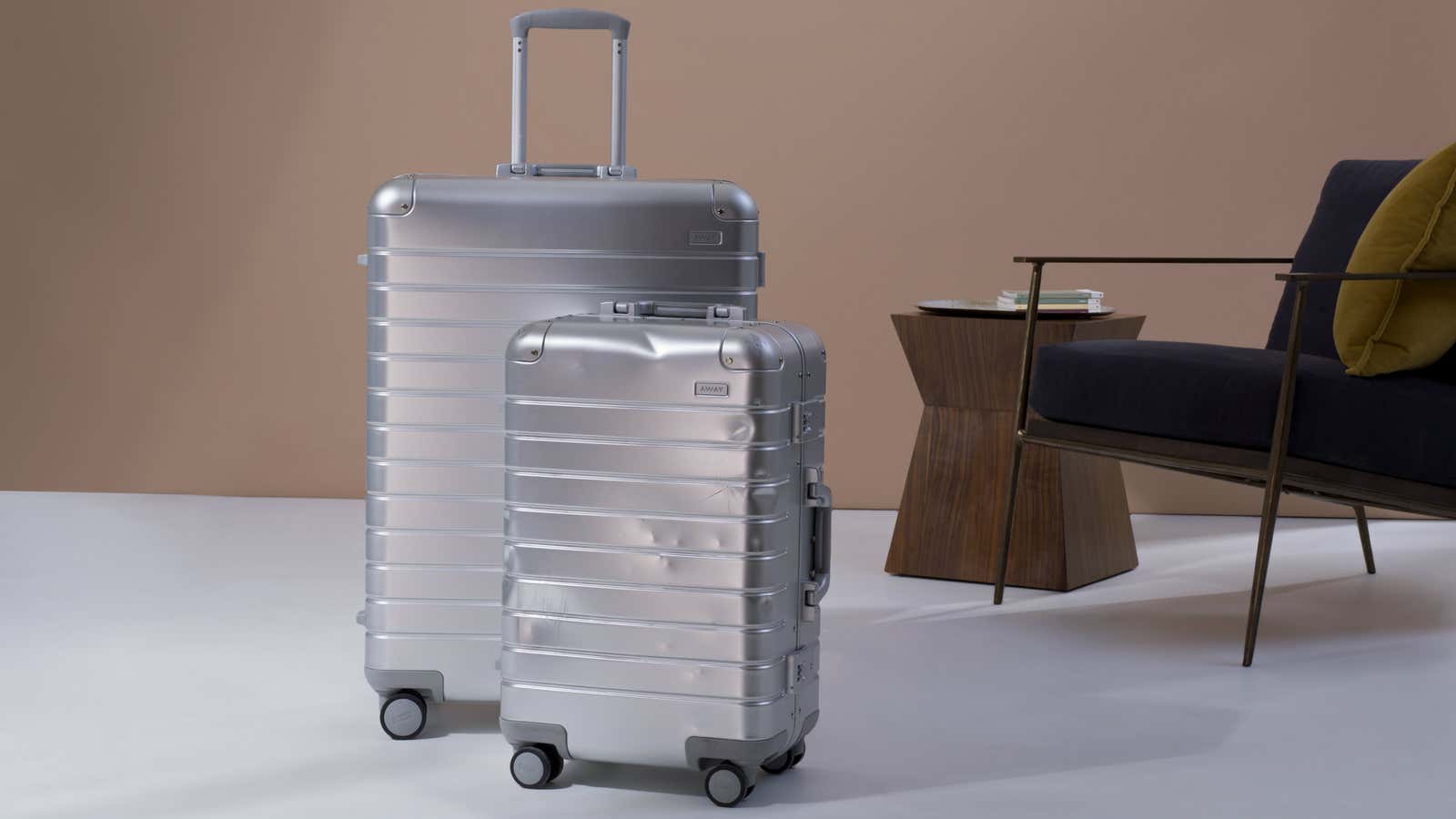How do you make a two-year old, VC-funded, cool kid luggage company with its own dedicated travel podcast and magazine even cooler? Just add aluminum—and some dents.
Away—the New York-based luggage company loved by frequent-flying millennials—rolled out its new “Aluminum Edition” bag last week, much to the delight of Instagram. Away’s original Carry-On, which features a conventional hard-sided exterior, already has somewhat of a cult following thanks to its removable phone charger, durable design, and clean aesthetic. But this new aluminum edition is a nod to a well-established metallic trend that was started nearly 70 years ago, by German company Rimowa.
If you spend a bit of time in airports—or look at pictures of celebrities being photographed by paparazzi while walking out of airports—you probably noticed an uptick in Rimowa’s aluminum cases gracing sidewalks and departures lounges in the past few years. In fact, the more-than-hundred year old brand launched their first version of the grooved aluminum alloy case in 1950 [paywall], inspired by a commercial aircraft jet. The brand’s sustained popularity (and sales) attracted the attention of luxury French luxury powerhouse LVMH, which acquired 80% of the then-still-family owned company in 2016.
So why is aluminum luggage so cool? It’s certainly not because it’s lightweight. Packing a full size aluminum Rimowa case may have you struggling to stay under the usual 50lb limit many airlines impose. It’s also not cheaper; Away’s aluminum carry-on is more than twice the price of its original model ($475 versus $225 for the company’s smallest size hard-sided carry-on). But Away’s product photography for their new range may give us a clue. It’s all about that most coveted sign of a truly frequent flier: wear and tear.
Indeed, dents and scuffs are all key components of the new line’s appeal—rather than something to avoid. While the cases aren’t sold pre-scuffed, of course, the company’s product shots (pictured above and below) are meant to communicate that imperfections are something nomads and wander-lusters should embrace, if not covet. But that’s not to say that everyone understands Away’s marketing message. On Twitter, one user questioned whether or not the dents in the pictured luggage were intentional.
Away’s social media team piped in with a response.
Indeed, an aluminum suitcase is not just about toting around a super durable (and more expensive) piece of luggage. It’s about toting around visible proof how much—if not how far—you travel. In other words: scuffs sold separately.
Correction: A previous version of this post noted that Away is based in San Francisco. In fact, its home is on the other coast, in New York City.
